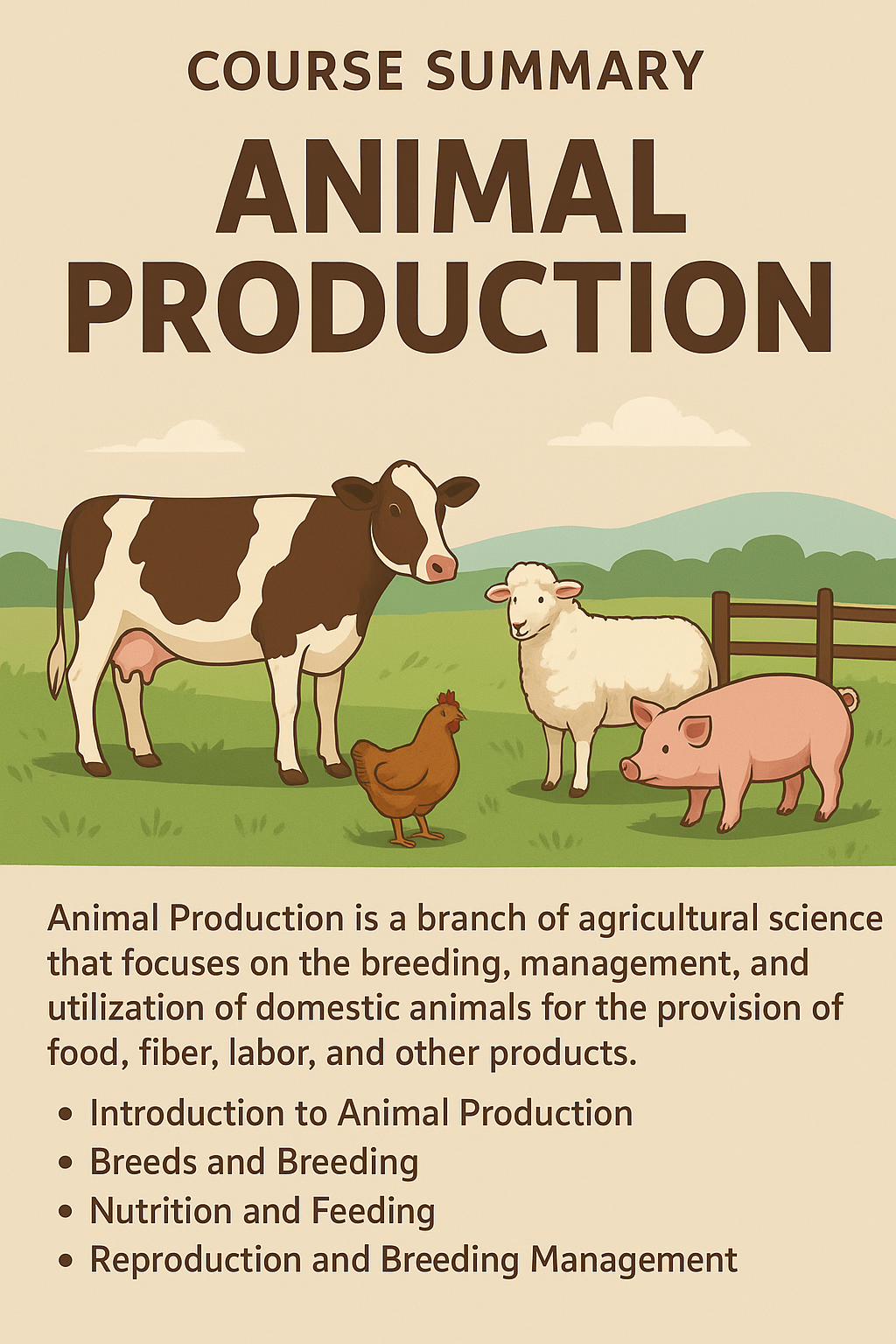
Animal Production is a branch of agricultural science that focuses on the breeding, management, and utilization of domestic animals for the provision of food, fiber, labor, and other products. The course equips learners with both theoretical knowledge and practical skills needed to improve livestock productivity and ensure sustainable use of animal resources.
Key areas covered include:
1. Introduction to Animal Production – Importance of livestock in agriculture, role in food security and the economy.
2. Breeds and Breeding – Classification of livestock, animal genetics, breeding methods, and improvement of desirable traits.
3. Nutrition and Feeding – Principles of animal nutrition, feed formulation, pasture management, and feeding systems.
4. Reproduction and Breeding Management – Animal reproductive physiology, artificial insemination, and reproductive technologies.
5. Housing and Management Practices – Design of animal housing, welfare, and handling of different species.
6. Animal Health – Common livestock diseases, prevention, and control methods.
7. Livestock Products and Processing – Milk, meat, eggs, wool, hides and skins: production, processing, and marketing.
8. Pasture and Range Management – Sustainable grazing systems, fodder crops, and conservation of forage.
9. Economics of Animal Production – Cost-benefit analysis, record keeping, and enterprise management.
10. Current Issues in Animal Production – Climate change, biotechnology, animal welfare, and sustainable practices.
Expected Learning Outcomes
By the end of the course, learners should be able to:
Demonstrate knowledge of livestock breeds, nutrition, and management practices.
Apply principles of breeding, feeding, and disease control to enhance productivity.
Manage livestock enterprises sustainably and profitably.
Contribute to food security and rural development through improved animal production.
- Teacher: Sharon Chepkoech